Profile
Melissa Hess
-
About Me:
I am a scientist near Philadelphia, and I love working on environmental problems. I do a lot of long-distance running, hiking, and love to bake.
-
Read more
The long answer:
I have a BA in chemistry from Bates College and a masters and Ph.D in Fuel Science/Energy and Geo-Environmental Engineering from Penn State. I really wanted to do chemistry with practical applications, and have gotten to do work on supersonic jet fuels, biodiesel, and catalytic converters. I also took nine years off my career to stay home when my kids were young. Once they were in school full-time, I was very excited to come back to work.
Outside of the lab, I spend a lot of time running- I’ve run 19 marathons and am training for my 20th, although I am very slow. I love to go on vacation with my family, and especially love hiking through some of the amazing places in this country. Those have been the two constants in my life. My other interests have changed over time, but I’ve done a lot of art, I used to write prolifically (and hope to get back to it), I used to play the flute, I was fluent in Chinese, and some days I love cooking. To quote an old novel I read, I’ve always been short on time in my life, never on what to use it for.
-
My pronouns are:
she/her
-
My Work:
I do testing for new ideas for catalytic converters, which clean up the exhaust from cars and trucks.
-
Read more
The company I work for (Johnson Matthey) has a large sector of its business in coating catalytic converters, which are used to clean up exhaust streams. While I mainly work on catalysts for diesel engines, we also make them for gasoline engines, marine applications, and factories/smokestacks. Exhaust gas from engines or burners flow into a catalytic converter, and the chemicals coated onto the cells will convert the pollutants to less harmful compounds.
I work in a testing lab. Scientists who are developing the catalysts come to me with their formulations and their testing goals, and I perform the tests. The lab I work on is one of the first labs our scientists will test their ideas in, so we work on a small scale. That way, they can explore many different paramters or formulations with a low cost and quick turnaround. I flow a simplified version of exhaust gas over their formulations at different temperatures, and then report back how well those formulations worked. They don’t always like my answers, but that’s an important part of science- finding out what works, and also what doesn’t.
We focus a lot on getting accurate results quickly, but we also focus a lot on doing so safely. Many of the gases we work with are dangerous in inhaled (that’s why we don’t want them in the environment, right?), and we work with high temperatures, so understanding how to keep yourself and your labmates safe is extremely important.
One of the things I really like about my job is that there is a lot of variety, and a lot of potental to learn new things. I came in with a good knowledge base about diesel chemistry and emissions chemistry, but I’ve learned a lot about mechanical design, electrical work, catalysis, and analytical methods that I had not used before. It keeps the work interesting and challenging.
-
My Typical Day:
I get up ridiculously early and work out- either running or swimming. I’m at work by eight, and I sit down and read my email and plan what I need to do that day (a list helps a lot). I set up the experiments I have to run, and then look at the results from the night before. If I have questions, I spend time talking to the people who asked for the test. I go for a walk over lunch with one of my work friends, and then come back and set up for the tests that will run overnight. I usually try to leave the lab by 4:30.
-
Read more
A Sample Day in the Life of a Testing Scientist:
5:15- Alarm goes off.
5:45-7:00- Work out.
7:00-8:00- Get dressed, fight 422. Usually the worst part of any day.
8:00-8:30- Read email. A few will be standard lab business. A few will be advertisements from equipment companies. Four out of five days at least one is a longer email from a scientist with some sort of problem.
8:30-9:00- Respond to the problem email. Plan my day out. Make a list- I am far more productive on days I make a list than I am on days I don’t.
9:00- Go back to the lab and see how the tests that ran the night before are doing. I have two reactors, and they are usually in one of three conditions: still running (good), shut down because the tests finished (very good), shut down because something went wrong (not so good). If the tests finished, start setting up the next test. If something went wrong, figure out what it was.
Nine times out of ten, if something went wrong, I did something wrong and there is a simple solution. Usually find that and slap my forehead, and set the test up to start again. But one out of ten times I need to start making repairs, and that means I probably have to rewrite my to-do list. Let’s assume everything finished.
10:30- Start looking at my data from the night before. Did everything run correctly? Will the scientist like the data? (The answer can definitely be yes for the first one and no for the second!)
11:00- Meeting with one of the scientists about something they want done. Sometimes it’s a short phone call between me and one other person. Other times it’s a two hour meeting talking about a complicated new procedure, with several people involved.
12:00-1:00- go for a walk with my walking friend, eat lunch.
1:00-3:00- Work on other projects. Testing takes the priority, but I have projects relating to how well the lab runs and improving communication between the scientists who give us the test and those of us who do the testing. I also try to make time for the Gender Equality Network, and there are other less-daily tasks that need to be done.
3:00-4:30- Set up evening testing.
4:30- Leave for the day, drive home.
5:00-10:00- Cook dinner, spend time with my kids and husband, play a board game, watch TV, and do no work whatsoever.
-
What I'd do with the prize money:
Support the robotics team at our local high school
-
Read more
I am delighted to see so many students in our high school participating on the robotics team. It’s a great STEM outlet, and teaches students so much about problem solving and specific subject matter. I would love to support that.
I also have been active in Scouts BSA for quite some time, and teach STEM merit badges, particurly Chemistry, Nuclear Science, Environmental Science, and Energy. Being able to ge some equipment to use teaching these badges would make for a much more engaging and informative session for the Scouts.
-
Education:
Shenendehowa High School
Bates College (BS in Chemistry)
Penn State University (MS in Fuel Science, PhD in Energy and Geo-Environmental Engineering)
-
Qualifications:
High school: Good grades, lots of extracirriculars (running, band, youth group, Girl Scouts, etc.)
College: Good grades, but also took advantage of opportunities like being a lab teaching assistant, an art teaching assistant (I did a lot of glaze mixing), short career studies, and eventually a research assistant in chemistry. Wrote a thesis on my research work.
Grad School: Obtained a lot of relevant experience through classwork, research, and teaching. I was a teaching assistant for Petroleum Processing, and I did my theses on supersonic jet fuels, which required me to build my own reactor. (I learned a fair amount about mechanical skills there.) Also did work on diesel emissions- learned a lot about engine testing, and was able to publish a few papers, including a chapter in a book. Refined writing and communication skills.
Post-Doc: Set up my own engine test cell for screening purposes. Budgeted my own projects. Was the only fuel scientist among a lot of biologists- learned a lot and taught a lot, had to bring a lot of diesel skills to the table. A lot of writing and communication skills required.
Current job: While a Ph.D didn’t hurt in getting the job I have now, I owe a lot to the tubing cutter I used when doing my graduate research. Knowing that I could work hard and was willing to do less glamorous jobs was a big factor in getting this one. I also bring a lot in terms of emissions knowledge and knowledge of different analytical techniques and chemistry, writing skills, and lab safety.
-
Work History:
High School:
Babysitter
Cashier at Arby’s
College:
Calculus and chemistry tutor
Chemistry teaching assistant
Art assistant
Nanny
Farmhand
Chemistry research assistant
Grad school: Grad school is a job in science. You take classes, but you are also a research assistant and a teaching assistant. I was specifically a teaching assistant for Petroleum processing, and this is where I did my work on supersonic jet fuels.
Post-doc at the USDA: I worked for two years at the United States Department of Agriculture on reducing NOx emissions from biodiesel (diesel made from soybeans). Built my own screening system, published several papers, presented at the Biodiesel Brainstorm.
Fulltime Caregiver: Spent nine years raising kids, which is an admirable and challenging job in itself.
-
Current Job:
Developmental Chemist at Johnson Matthey. I do testing of catalyts for catalytic converters.
-
Employer:
Johnson Matthey
-
My Interview
-
How would you describe yourself in 3 words?
optimistic, sarcastic, determined
What's the best thing you've done in your career?
Present at the Biodiesel Brainstorm
What or who inspired you to follow your career?
My high school biology and chemistry teachers and my father and grandmother
What was your favorite subject at school?
English
What did you want to be after you left school?
novelist, medical researcher
Were you ever in trouble at school?
no
If you weren't doing this job, what would you choose instead?
Nuclear power engineer or materials scientist- or novelist
Who is your favorite singer or band?
Barenaked Ladies
What's your favorite food?
Cheese (especially Brie with fruit)
What is the most fun thing you've done?
Whitewater rafting
If you had 3 wishes for yourself what would they be? - be honest!
My children would have happy, long lives, magical cleaning snap, and the ability to eat whatever I want with no negative side effects.
Tell us a joke.
People are always telling me to live my dreams, but I don't want to be naked in a math test I haven't studied for.
-
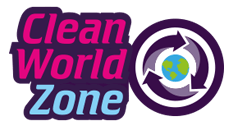
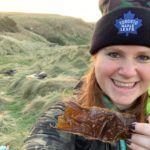
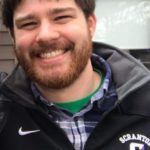
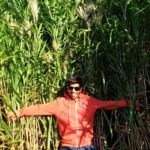
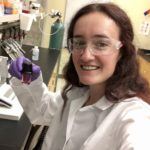

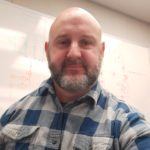
My Comments